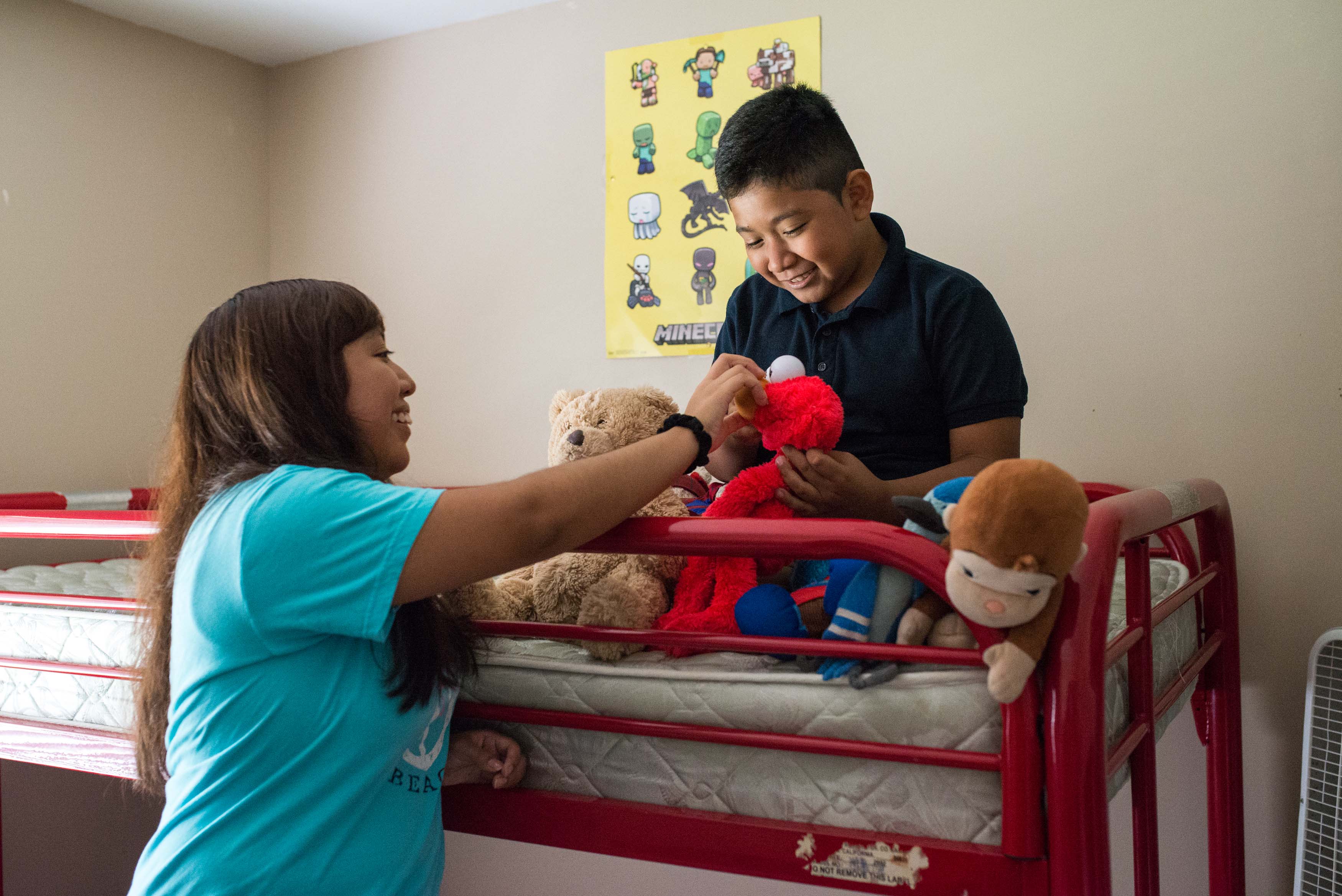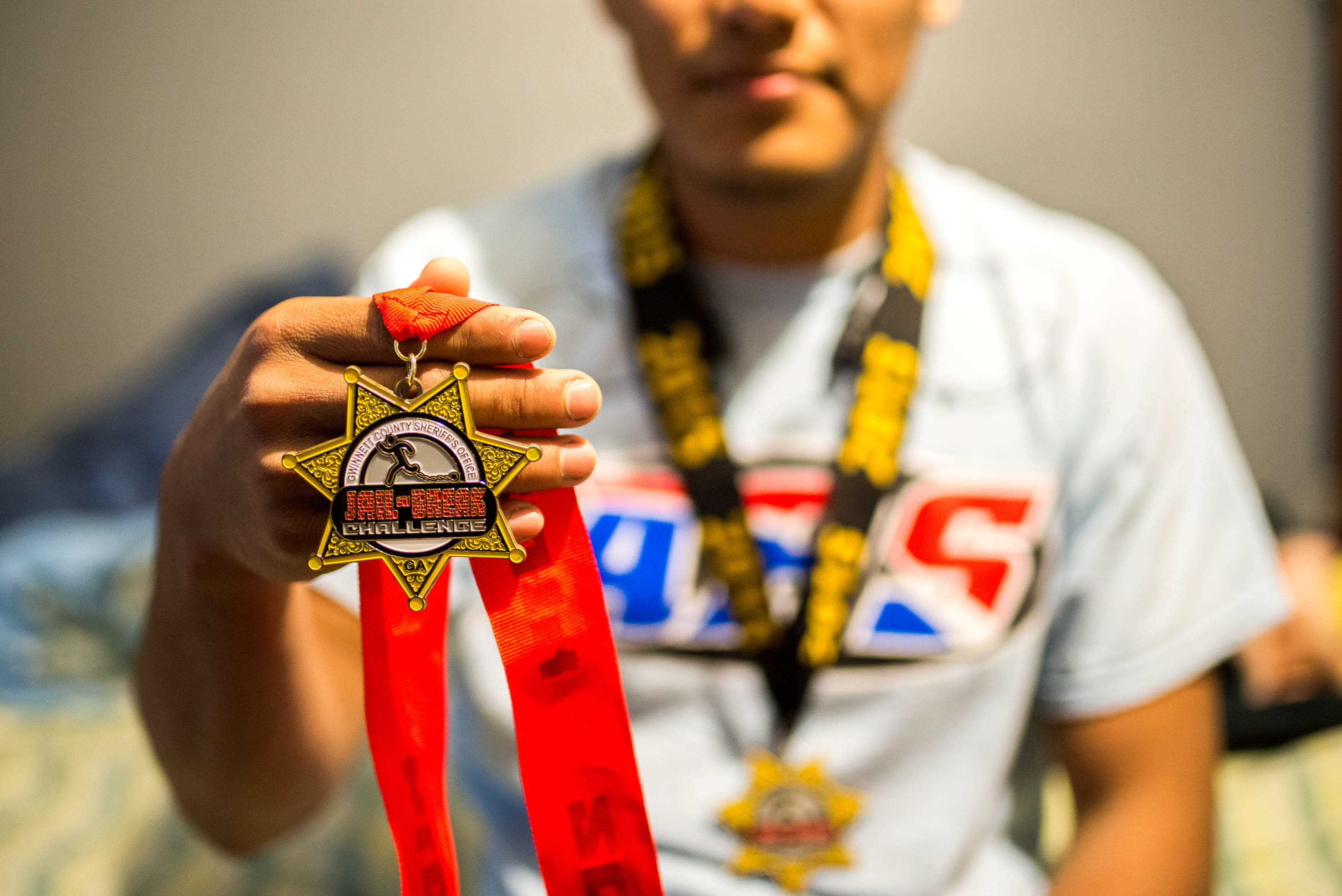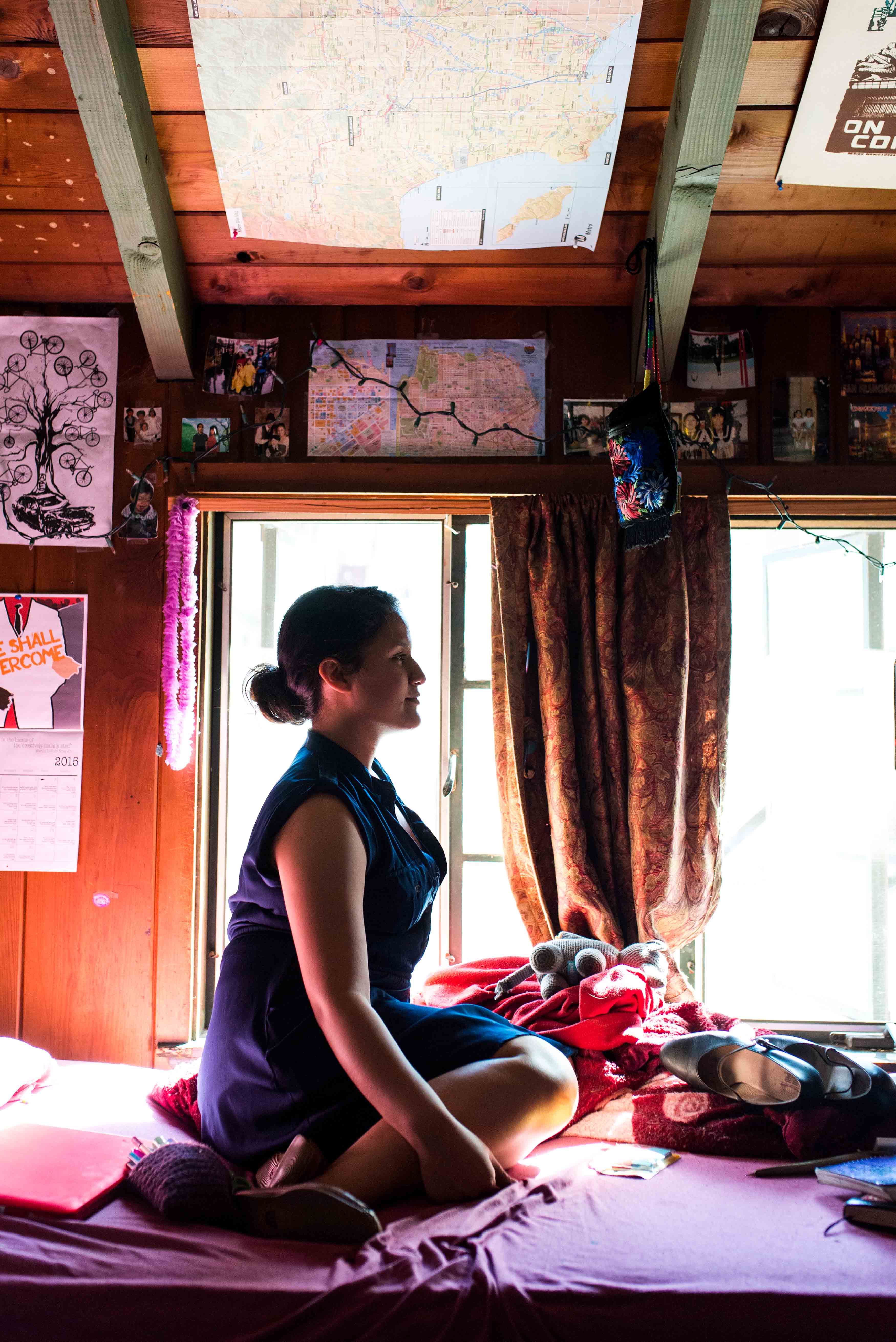Above: Alma Alvarado is one of about 450 undocumented students attending UCLA. She is a third-year Spanish and anthropology student and a member of Improving Dreams, Equality, Access and Success.
The Human Cost
Editor's Note
The lives of undocumented people in the United States are at the whim of state officials who create policy to fill the gaps in federal legislation.
Some undocumented students in the United States are admitted to college with resident tuition and state aid. Others - different only in where they live - are banned from public institutions.
Reporter Natalie Delgadillo, opinion columnist Ryan Nelson and photojournalist Angie Wang spent 11 months piecing together what it means to be an undocumented student in the United States. They looked at the lives of students in California, where policies are comparatively lenient, and in Georgia, where students are subject to some of the harshest higher education policies in the country. They found that the stories of students in both states shed light on the arbitrary nature of immigration policy in a country where federal action on the issue continues to stall.
The Bridget O’Brien Scholarship Foundation has funded eight years of UCLA student journalism with global reach and local impact, including this project. To learn more about the scholarship, visit rememberingbridget.com.
Alma
Alma Alvarado was home alone when she found out she got into UCLA.
She was living in a small apartment in Planada, California, just outside Merced. She was often there by herself, because her older brother, the only other member of her household, worked long hours. On this day, she sat alone at home again, and opened her laptop with her heart in her throat.
It was a moment that could have made her feel completely and strikingly alone. She was about to read news that could determine the course of her future, and the most important people in her life weren’t there to see it.
But Alvarado pushed those thoughts out of her head and opened the email. She had endured a long string of challenges to bring herself there, to that apartment, reading the news that she had been accepted to one of the best public schools in the country.
In many ways, Alvarado’s moment of joy and triumph was a product not just of her hard work, but also of her circumstance. As a student in California, Alvarado’s prospects are more promising than those of thousands of students across the United States, where policy can be harsh and restrictive, preventing them from ever getting the kind of letter she opened that day.
“I kind of think of her as a rebel. She wanted something different for herself. And she did it.” Alma Alvarado
Undocumented students in Georgia are among the most unfortunate in this respect; they receive no state financial support for their education and are even barred from attending certain schools. Alvarado’s story and theirs exist on opposite ends of a broad spectrum of policy, shedding light not only on one another, but also on every state and undocumented resident who must navigate a sea of policies that lie somewhere in between.
Alvarado came to the United States on a visitor visa when she was 13 years old. She is the youngest of seven children, and her older siblings had already immigrated to the U.S. Among them was her older sister Felipa, seven years her senior and the only other girl in her family, who was the first to leave their tiny village in the mountains of Durango, Mexico, at just 15.
“I kind of think of her as a rebel,” said Alvarado, now a third-year Spanish and anthropology student at UCLA. “She wanted something different for herself. And she did it.”
Zuri
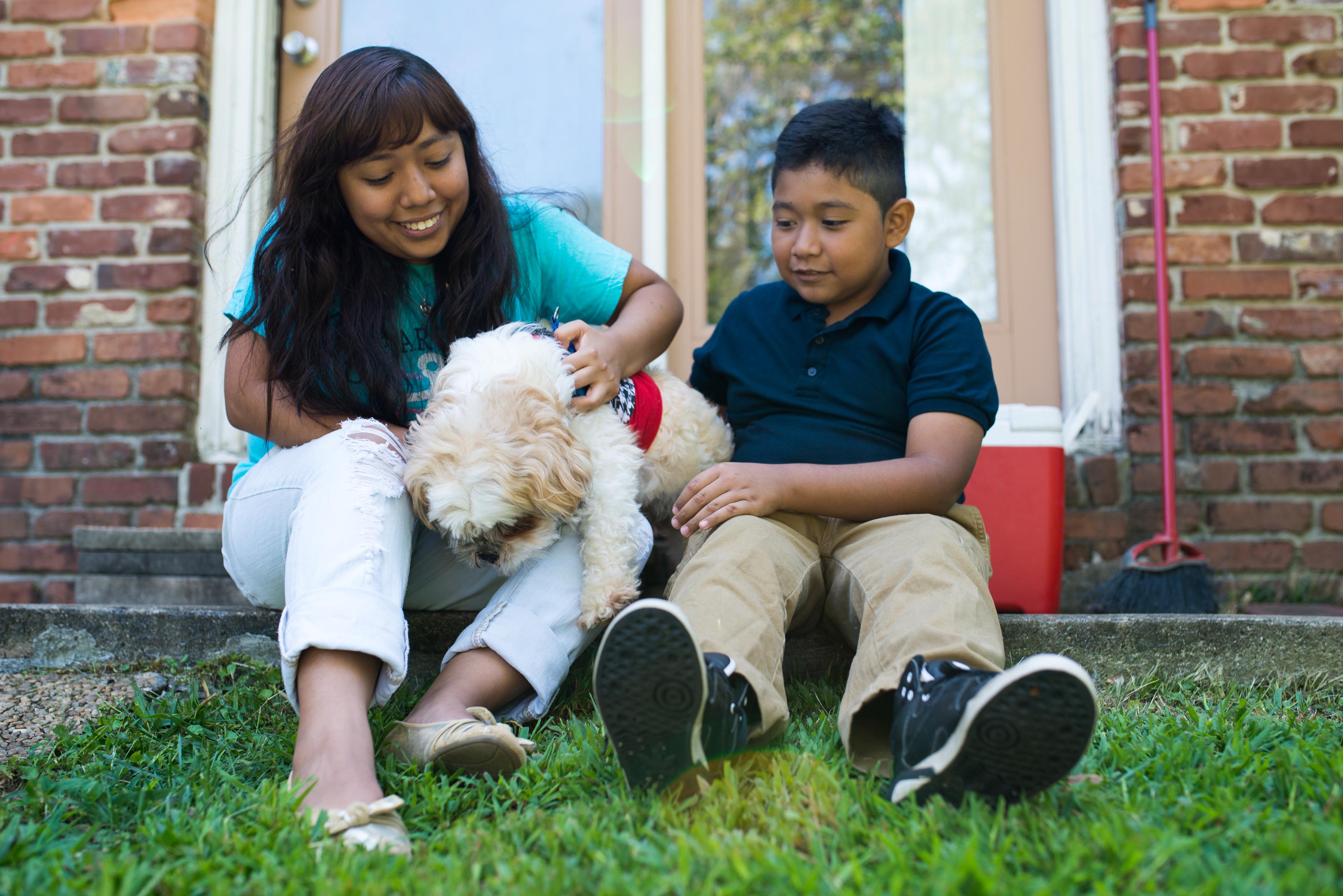
The freedom to nurse a dream
Four years ago, Zuri Flores took a job scanning groceries at a Food Depot in Stone Mountain, Georgia, instead of pursuing her dream of becoming a nurse. Click to expand.
Alvarado is from El Palmito – a tiny cluster of houses in the mountains of Indé, a small municipality in northern Mexico’s Durango state. The air is thin and cool so high up, as the town teeters at 5,000 feet above sea level.
Most of the 300 residents of El Palmito grow corn or beans to make a living. The village has one tiny schoolhouse, staffed by a single teacher. Most of its students stop going by ninth grade, Alvarado said.
“There really is not a lot for women to do there,” she added. “You get married, you have kids. That’s it.”
In El Palmito, it’s not uncommon for women to get married at 15 years old, the exact age Alvarado’s sister was when she packed her things and spearheaded her family’s migration north.
Alvarado didn’t want to get married. Certainly not at 15. And even if it happened later, she didn’t want to live a life dictated by the narrow possibilities of El Palmito. So when she was 13 and visiting her siblings in the United States, she decided to stay.
Alvarado had, at her parents’ behest, been attending school during the short trip. At first she hated every second of her time at the huge school and did not understand a word of English. But by the time her three-month visit was over, she had begun to rethink that initial distaste, instinctively understanding that school in the United States opened up a world of possibilities unavailable to her back home.
“Maybe it was the same reason my sister came,” she said. “If I had gone back, I would have had to get married. I didn’t want that. I wanted to choose my life.”
So Alvarado stayed, setting her pillow down wherever one of her siblings in the U.S. could offer her a bed. First she stayed with her brother, then with her sister, then with another brother. By the time she entered college, she had lived in a different place almost every year since arriving in the United States.
Her first two years of school in the United States were miserable. Her English wasn’t very good yet, and she was lonely. She couldn’t talk to her parents by phone very often. But her loneliness stirred a stoic determination in her.
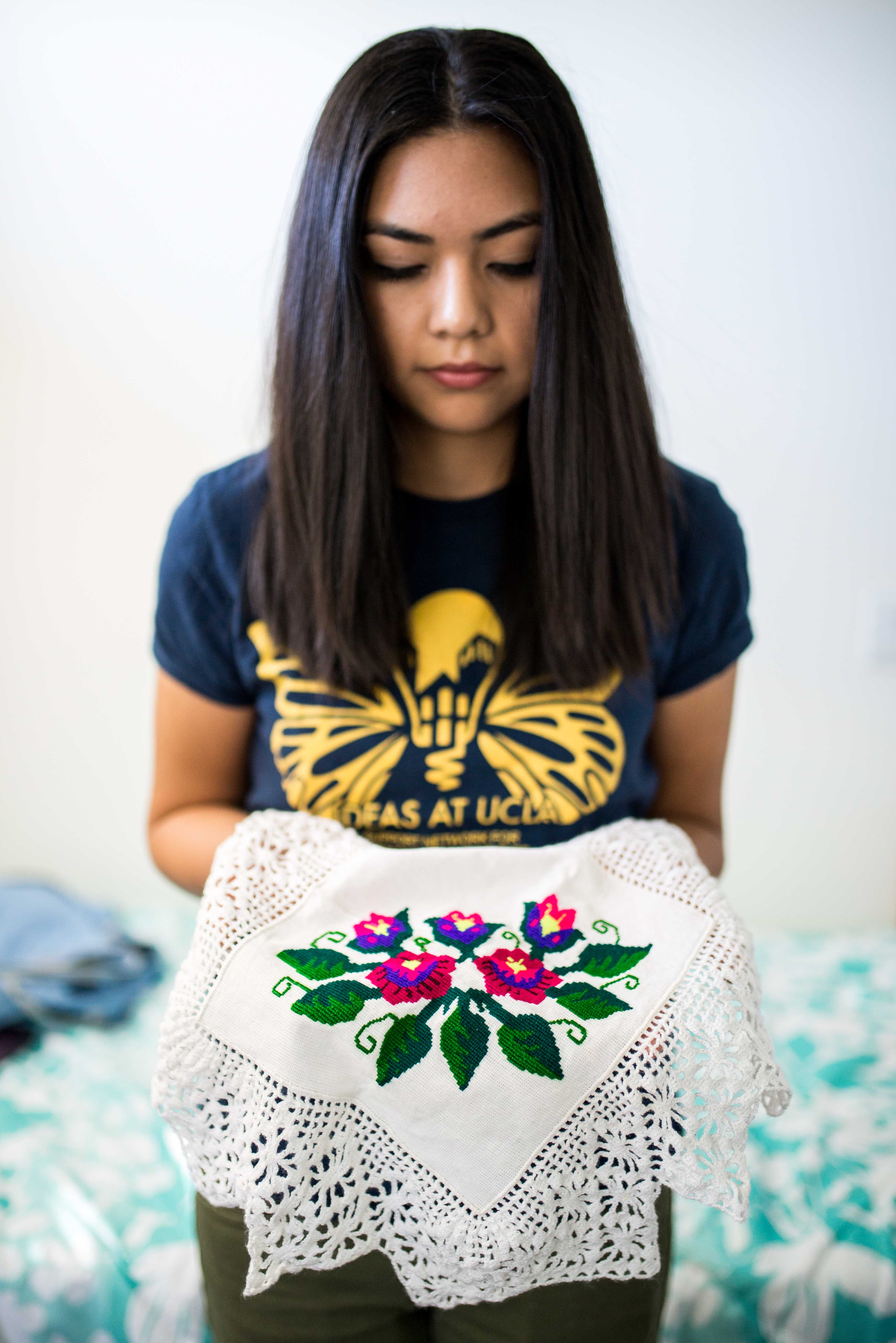
“I had never been away from my mom before,” Alvarado said. “I was really lonely, so I focused all my energy on school. I thought, ‘Okay, this is why you stayed.’”
Her focus slowly paid off. By ninth grade, she had a handle on the language, and it was starting to show in her grades. She began to think about college, but it felt like a distant dream to her, something she fiercely hoped for but didn’t know how to achieve.
Then the summer before college applications were due, her Spanish teacher and a high school adviser recommended her for a program at UCLA with the Migrant Scholars Leadership Institute, aimed at encouraging young migrant students to go to college. It turned out to be the stroke of luck and fate she needed to get where she wanted to be.
“That conference really changed my life,” she said. “It finally felt like I could really get here.”
And now she was in. Almost immediately after she announced her acceptance on Facebook, friends from school and her mentor from the Migrant Scholars Leadership Institute flooded her phone with calls and texts. They seemed almost as ecstatic as she was.
“I realized in that moment that I wasn’t in this alone,” she said.
At UCLA, Alvarado found new people to continue sharing her journey. She joined a support and advocacy group for undocumented students during her first quarter on campus – Improving Dreams, Equality, Access and Success, or IDEAS.
At weekly IDEAS meetings, people ate, talked, laughed, listened. At first, Alvarado was intimidated by this group of people who seemed so direct and unafraid, who lived more openly and daringly than she felt she could.
Victor
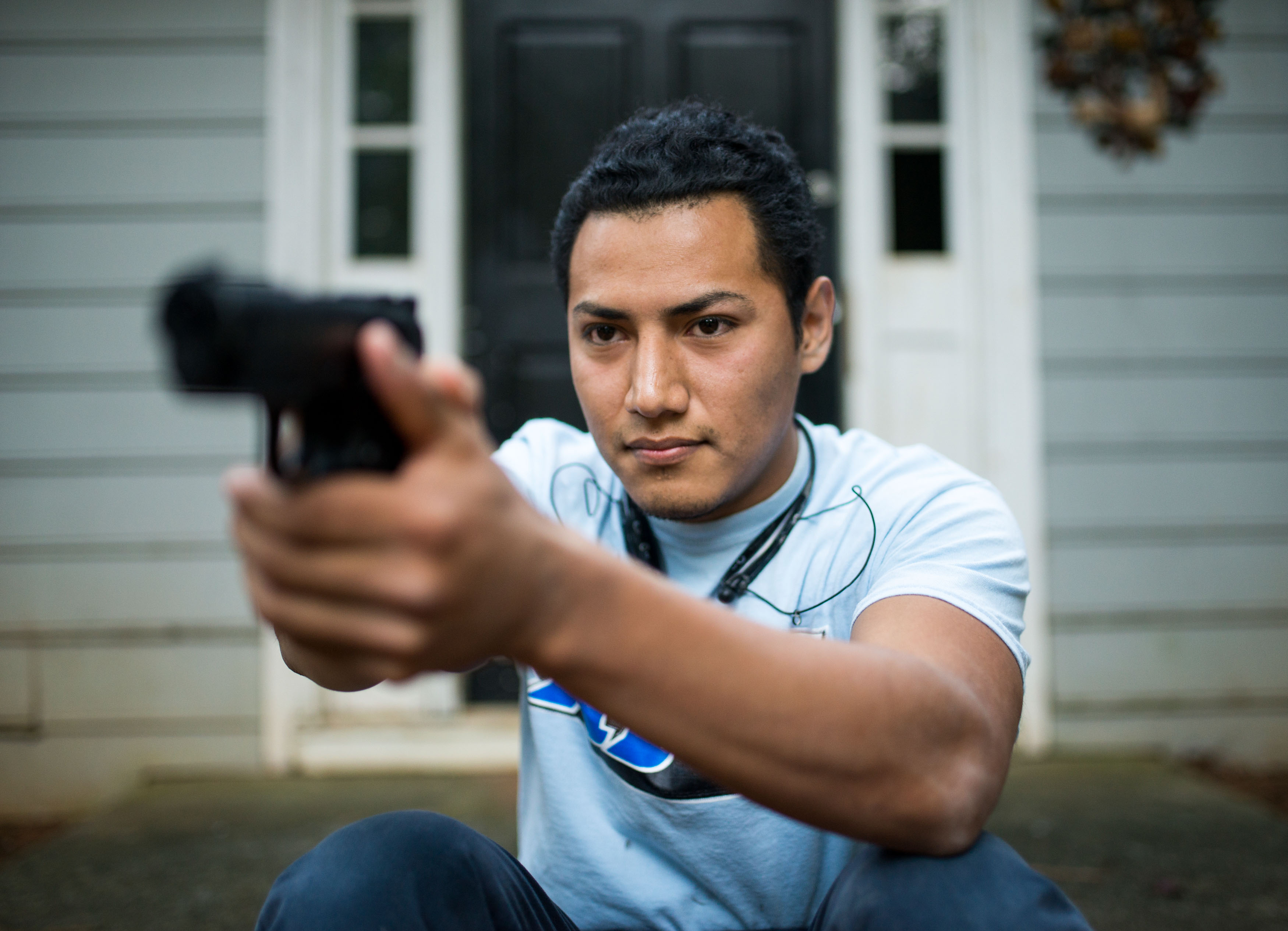
Continuing to fight off ‘the bad guys’ from every angle
Victor Barragan chased down “the bad guys” on the cold, hard living room floors in his home, pretending to be a cop. At the age of three, he knew he wanted to be a police officer, and almost 20 years later, he’s still working toward that goal. Click to expand.
But as her college career progressed, Alvarado grew more sure of her place. She started attending more meetings, taking on more responsibility and now she holds a position on the board. IDEAS, she said, taught her how to see herself and her identity in a new way.
“They have given me – understanding,” she said, pausing a minute to find just the right word. “They have taken the fear of being undocumented away from me.”
But nothing can take away the central uncertainty for Alvarado and the rest of the millions of undocumented people in her situation: Will she be able to stay in her adopted country? Will she be allowed to work? Will legislation finally offer her and her family security and the opportunity to adjust her status?
In the meantime, she and the students at IDEAS do the only thing they can do. They advocate for themselves. They try to educate their classmates, administrators and professors. Over the years, their work has expanded to include work outside the bubble of higher education, partnering with community organizations that offer legal services and organize to stop deportations.
“When Obama announced (Deferred Action for Childhood Arrivals) and (Deferred Action for Parents of Americans and Lawful Permanent Residents), it was great. But they don’t help (the day laborers); they don’t help my brothers.” Alma Alvarado
For Alvarado, that expanded community work has a special meaning.
During her high school summers, Alvarado worked in the fields with her brothers, planting lettuce and getting to know the day laborers. She thinks of those laborers when she hears about new proposals for undocumented workers, a new anti-immigrant movement, a legislative victory.
“When Obama announced (Deferred Action for Childhood Arrivals) and (Deferred Action for Parents of Americans and Lawful Permanent Residents), it was great,” she said. “But they don’t help (the day laborers); they don’t help my brothers.”
In fact, they do not even help Alvarado herself – she does not qualify for DACA, having arrived in the U.S. just one month after the cutoff date for qualification. The need for an expanded scope of protections, so evident in her own life, drew her to activism and to promoting action for all undocumented individuals.
The victories, she said, shouldn’t just be for students, or for people who were brought to the United States as children.
She emphasized this point, repeating it several times.
“Students are a part of this, yes,” she said. “But I would like my entire community to see a benefit.”
Felix
“Right now, I’ll go to college anywhere.”
We’re sitting on a bench in Atlanta’s Centennial Olympic Park on a sunny Wednesday afternoon in September. Felix Flores had just gotten off of work at his construction job about 40 minutes outside the city.
His posture is easy and relaxed. His face is open and friendly. I would never have known he was doing manual labor all day if he hadn’t told me so.
“I will go anywhere,” he said again. “I just want to be in school. That’s what I want.”
Flores lives in Cherokee County, Georgia, a suburb outside Atlanta. He graduated from Cherokee High School in 2014 with a soccer scholarship to the University of Georgia, one of the state’s top schools.
“I will go anywhere. I just want to be in school. That’s what I want.” Felix Flores
But more than a year after his graduation, he still has not been able to enroll in a single class at an accredited higher education institution because he is undocumented.
Flores’ family emmigrated from Mexico 15 years ago so his parents could find work. As an undocumented student in Georgia, he would be required to pay out-of-state tuition at any Georgia public school, despite having lived in the state since he was 5 years old. Georgia is one of only three states that explicitly prohibits universities from offering undocumented students resident tuition rates.
In-state tuition and benefits for undocumented individuals by state
Data from the National Conference of State Legislatures.
College costs are overwhelming to millions of students across the country. But for undocumented students, they can be an insurmountable obstacle – they are barred from federal financial aid, and often do not qualify for state aid either. Their families are often low-income and cannot shoulder the expense. If they do not qualify for DACA, they cannot even work on campuses to help pay for it themselves.
Flores almost overcame all of these barriers. He was awarded several scholarships to play soccer at the university level, including one at the University of Georgia, which was his dream school.
But undocumented students in Georgia are also subject to a particularly strict policy its opponents call “the ban,” which requires the top five schools in the state to check prospective students’ citizenship status before enrolling them in the university. Undocumented students in Georgia cannot attend any of the state’s best schools under any circumstance, no matter their qualifications.
The University of Georgia, one of the schools subject to the policy, cannot enroll any student without legal status, much less give them financial aid to play on the club soccer team.
Flores didn’t know that at first – the ban is not widely known or understood in Georgia high schools. The offer he got from the University of Georgia felt like a dream come true, the opportunity he had worked so hard for.
Flores was a four-year letterman on his high school soccer team and was the only freshman to make varsity his first year. During his senior year of high school, coaches and friends asked him if he had anyone scouting him to play at the college level. When he said no, they suggested he send videos of himself playing to recruiters, as is normally done to generate interest in a high school athlete. He followed their advice, not thinking very much of it.
Josefina
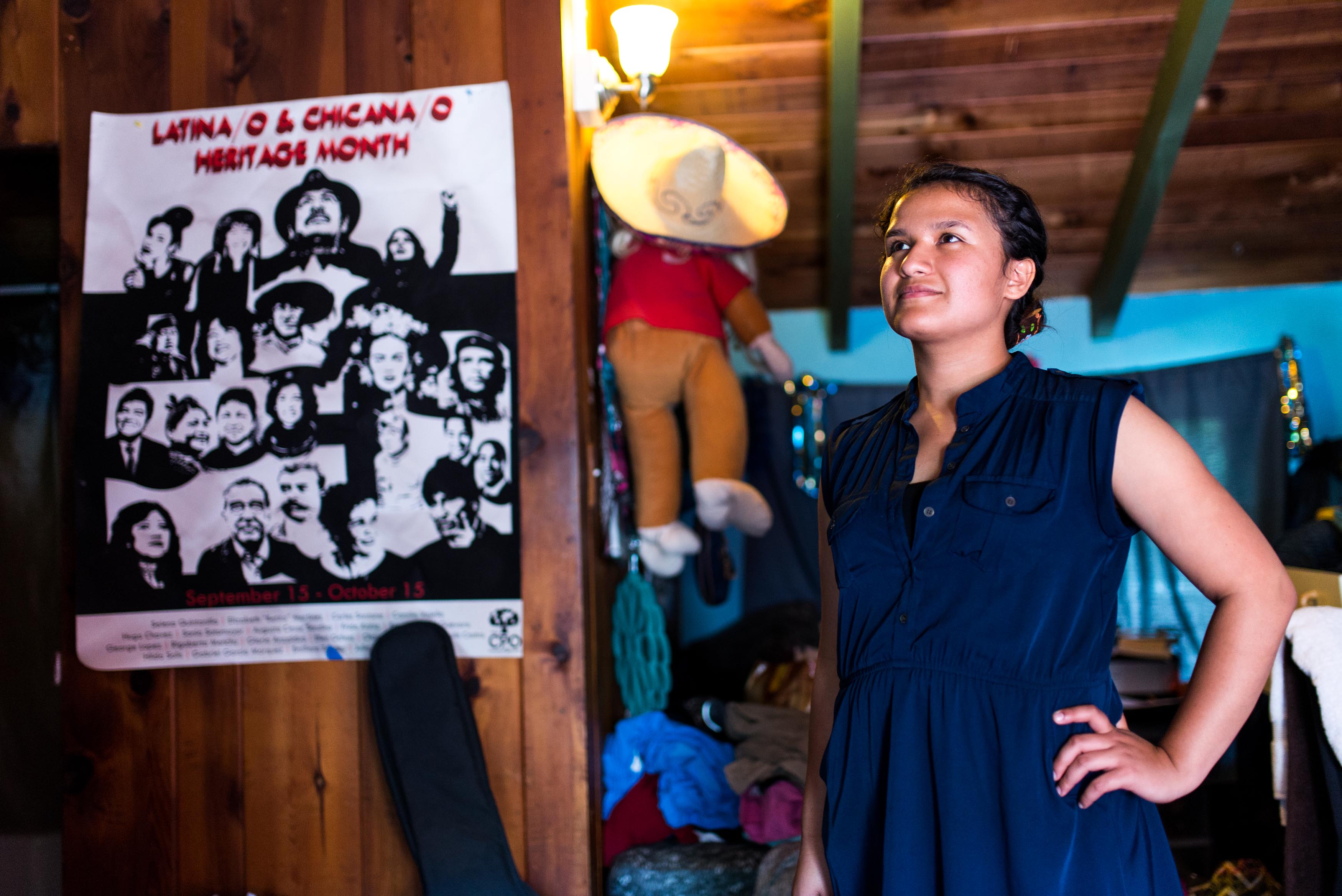
Perseverance pays off in journey fraught with financial worry
Just before the start of her first quarter at UCLA, Josefina Flores had to come up with $4,000. She was short nearly the entire amount of her fall quarter tuition, and she needed to secure her spot in classes. Click to expand.
“There were three, four coaches from different colleges coming to every one of my games,” he said. “They were coming up to talk to me afterward, telling me they wanted me to play for them.”
By the end of the season, he had received soccer scholarships to the University of Georgia, Ohio State University and Georgia Gwinnett College, which was a joy and a relief to him, because his family could not afford to shoulder the full cost of his education themselves. With the extra aid, he and his dad started talking about buying him a car so he could make the commute to school. He was elated.
Then the letters started coming, one by one, from each school that had offered him aid. His mother opened them during the day when Flores was still at school, but she couldn’t read English. She held them out for him to read when he got home.
When he opened them, his heart fell.
All of his scholarship offers were retracted, including the ones he had received out of state. Flores believes they were rescinded because of his status as an undocumented student – and that’s certainly true for at least one of them. At the University of Georgia, he could not even be admitted as a student, let alone a funded student-athlete. Confused and deflated, he and his family went to the admissions office to try to figure out what had happened.
“(The admissions officers) didn’t really want to talk about it, basically,” Flores said. “They just said, ‘You’re not from here, we can’t let you in.’”
After two months of trying to figure out how to get the scholarships back or find some other way of going to school, Flores says he more or less gave up.
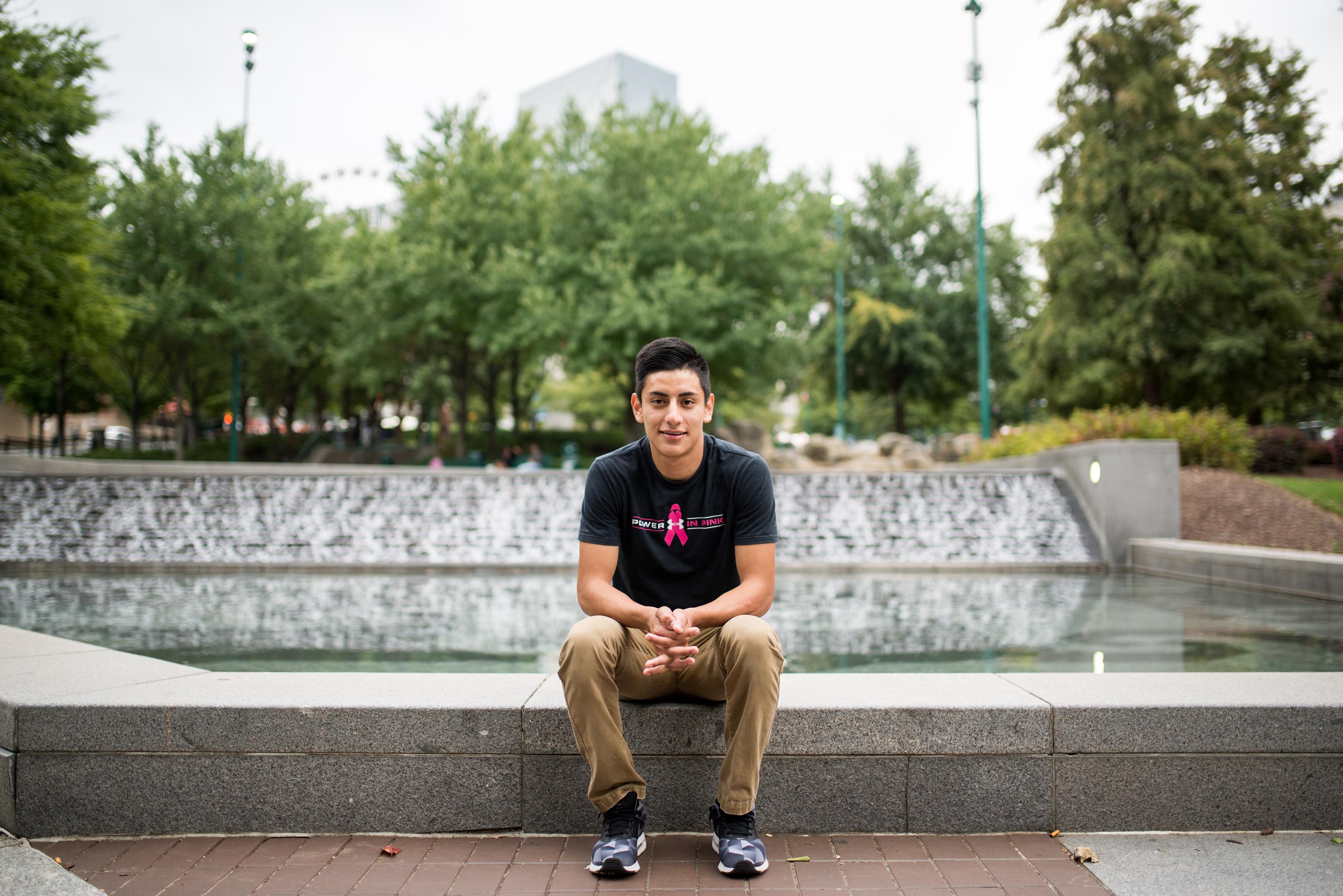
Now, he wakes up at 5 a.m. every day to get to his job in construction, and often doesn’t get home until it’s dark outside again. He plays in an indoor soccer league to keep his skills sharp because he still loves the game.
He lives with his parents and his sister Ivonne Flores, who’s still in high school. She is a U.S. citizen.
“We’re really close. She’s the only one who…” he stumbles for a second. “It’s just us two.”
On the day he arrived in the United States, Flores was 5 years old. His mother and father had already been living there for a year. He was driven straight to Northside Hospital in Atlanta, where his sister was being born.
“I remember that day. I’ll never forget that day,” he said, smiling. “I walked in and … my sister,” he said, holding his hands out in front of him. “I barely even paid attention to my mom. I was paying attention to my sister.”
He is silent for a minute, then chuckles lightly. “She told me if she could let me borrow her papers so I could go to school, she would.”
RJ
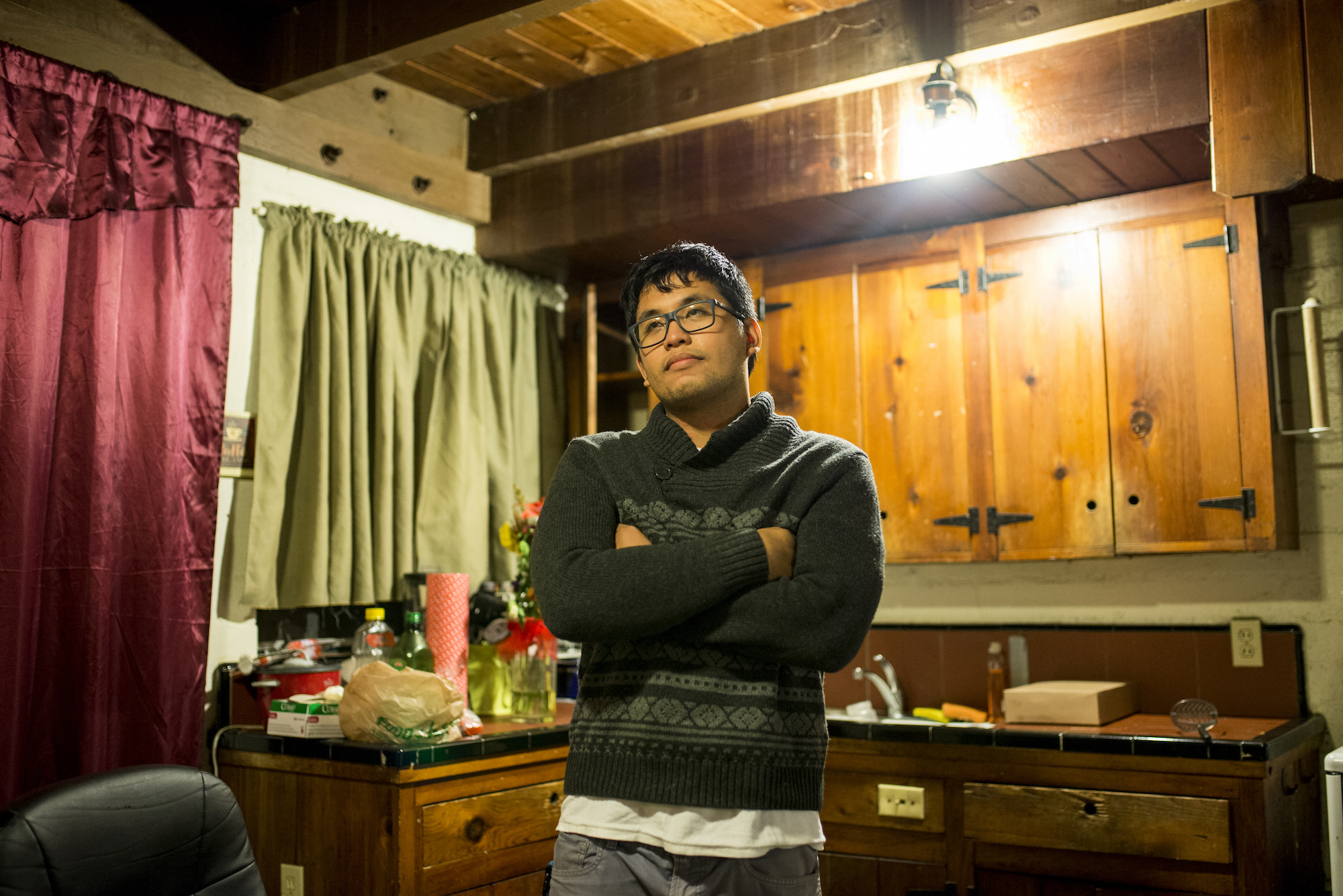
Keeping it together
Reuben John Ronquillo, who goes by RJ, sat in a swivel chair in the UCLA graduate student resource center where he works. We sat at a long, communal table that takes up most of the room. He looked pensive and a little careful. Click to expand.
For now, Flores waits and hopes to figure out a next move.
He’s not sure Georgia will ever change, and thinks it might always be impossible for him to go to school there. But maybe, he says, he could go to California one day and eventually go to school there. Maybe he can figure something out, he says.
In the last few months, Flores has been feeling more motivated, more excited about the prospect of going to school again.
“It’s about using your knowledge to affect the world around you and to make a difference for yourself. That’s the most important part of Freedom (University).” Lauro Emiko Soltis
He has been attending Freedom University in Atlanta for a few months now. Based on the “freedom schools” of the civil rights movement in the 1960s, Freedom University was created as a direct response to the implementation of the ban.
Professors, activists and organizers created Freedom University to promote action through education, said executive director Laura Emiko Soltis.
“It’s about using your knowledge to affect the world around you and to make a difference for yourself. That’s the most important part of Freedom (University),” she said.
Taking classes and meeting other students in his situation at Freedom University has given Felix both the hope that he might be able to get into college somewhere and a deeper sense of his own humanity as an undocumented individual.
“No one is embarrassed at Freedom about where they come from or who they are,” he said.
“We’re all just humans there.”
Next: State policy and federal legislation hugely affect the outcome of undocumented individuals’ lives. But their stories are not about a people in stasis, waiting for whatever might drop down on them. Next, we learn about the activism happening in the undocumented communities in Georgia and California, and how two sets of people are working to affect change for themselves and for one another.
